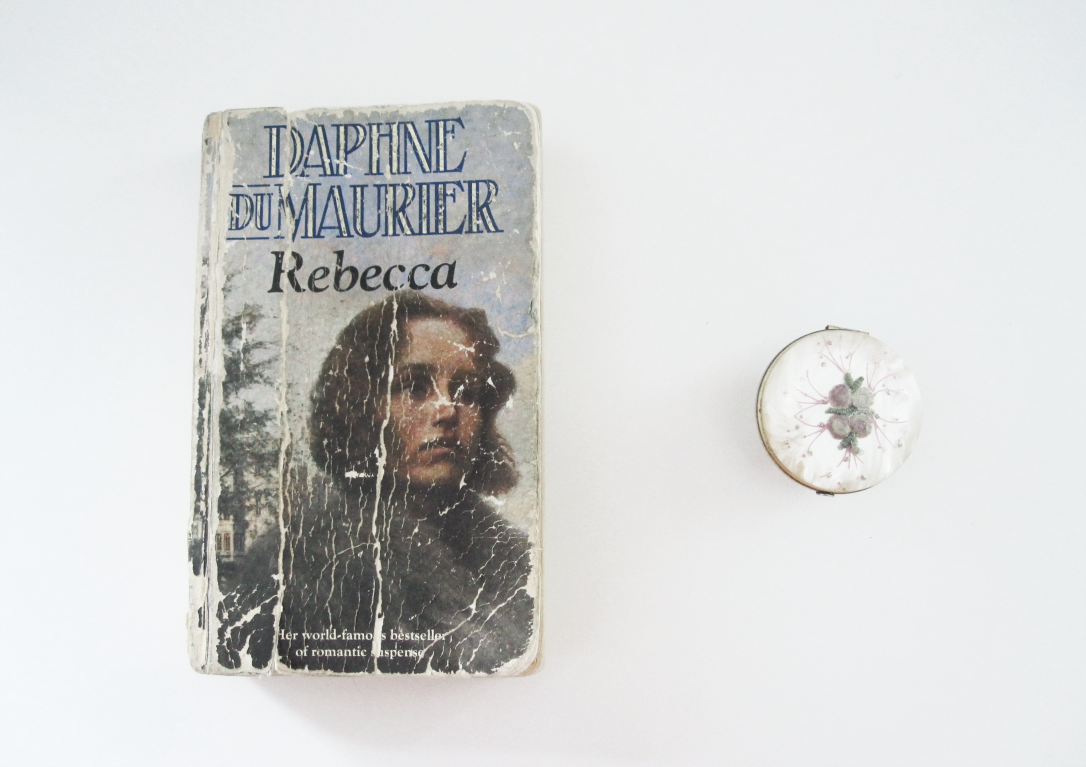★★★★★
There are some books I’ve simply never owned, despite being among my favourites. I’ve discovered I’m rather picky when it comes to book covers – I refuse to purchase a copy of a favourite book if I don’t feel the cover and the binding are sufficiently nice, worthy of gracing my favourite novels. Rebecca is one of those novels: I’ve yet to find a copy that I felt suited the book, and thus this tattered, dog-eared copy is property of my school’s library.
Rebecca is manages to be both a love story, as well as a thriller. Our anonymous heroine is plucked from her life as an equal parts companion equal parts servant to the imperious Mrs Van Hopper by the mysterious and debonair Max de Winter. The Mr. de Winter is a recent widow, his wife Rebecca having recently passed, and the owner of the grand estate, Manderley. Our narrator rapidly marries Max and takes up residence in the estate, and finds herself expected to fulfil a variety of duties, for none of which she feels equipped. Her reliance on the home’s staff is in stark contrast to the late Rebecca, whose praised are sung by everyone our protagonist encounters, and who is an ominous, perpetual presence. Haunted by her predecessor, our narrator begins to dig deeper into her husband’s relationship with her former wife, and reveals a darker, more dangerous secret than she initially imagined.

Not enough can be said about Daphne du Maurier’s prose; it is absolutely exquisite. Every detail, every moment is perfectly portrayed. Every image is clear and she paints Manderely and its cast of characters so vividly that there is no question as to why Rebecca was, and continues to be, popular. The casual reader and the avid reader alike will be enthralled and delighted by the novel.
The heroine, though unnamed, is exceptionally relatable. I think everyone has had their moments of weakness, of jealousy, where they question whether or not they’re being mocked or otherwise maligned by the people around them. The universal experience of jealousy, of feeling inadequate, is equally well-portrayed, as the narrator’s obsession with Rebecca, with trying to know everything about her, to figure out what she was like is a feeling I think most people will understand.
There is also a certain mastery in the portrayal of the heroine, in that, while the novel is written from the first-person, we rarely have a glimpse into her past. The reader is inside her head for the entirety, and yet we know so little about her. It would be easy to have created a silhouette of a character, to never fully flesh own out in this situation, but du Maurier did not do that. She provided a very real, very human narrator, despite her being almost too relatable, too easily moulded to fit the reader’s own understanding of themself.
[Quote]
I’ve said before that I am a keen consumer of all things thriller and horror, and while the twists of Rebecca aren’t well-disguised to someone like myself, that is less the fault of du Maurier, and more of my own levels of saturation with the genre: we cannot blame du Maurier for modern media using her novel as inspiration, nor for the tendency of contemporary writers to utilise numerous and thinly-veiled twists to create some kind of story.
My main gripe, really, is with the character of Max. I understand that he is a function of his time period, and that I am coming from a modern perspective, but I still find him to be quite the unpleasant boar. He’s moody, unpredictable, cold and unpleasant. We’re supposed to understand that he loves our narrator, but it’s difficult to see that when he frequently treats her – as she mentions at one point herself – like a familiar pet. I cannot pretend that I find him romantic, or otherwise engaging, when he mostly acts like a petulant child – stomping about and whining, and causing our poor heroine a great deal of heartache. She would hardly feel secondary to Rebecca for the majority of the novel if he were to simply treat her better!
Outside of that, I have no real criticisms of the novel and I thoroughly enjoyed it. Perhaps this review is fuelled by nostalgia, and I’ll freely admit that I am biased. I love Rebecca, I love everything about it and I would read it over and over again, and I won’t buy a copy until I find one that I feel has the cover that it truly deserves.
I was initially off-put by the ragged cover, offended almost, at the poor condition. But I have to admit, it has grown on me. The tatters obscure the female face on the front and it seems oddly fitting: whether the image is intended to be of our heroine, whose identity is shrouded in mystery throughout the novel, or our eponymous Rebecca, whose character initially appears to be so perfect, until the cracks begin to show. In either case, the obscured image fits both women, and though I know it wasn’t intentional, I rather like how it ended up this way.
